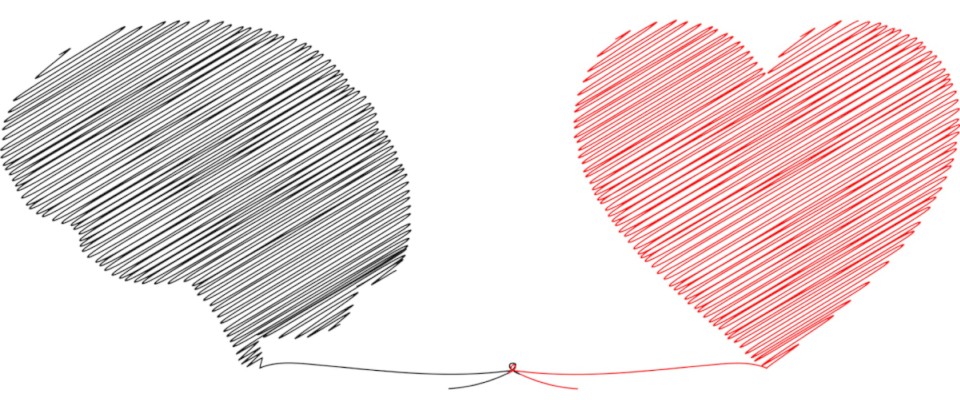Over the past three days, I have repeatedly listened to a song that touches a spot deep inside: “See Me Fight” (by Two Steps From Hell). At the beginning of the video—and in some other places as well—I have seen the tag line “Music Makes You Braver,” and the spot this particular song touches indeed seems to be one of courage.
I find it incredibly difficult to put into words just how this touching and courage inducing happens. Maybe you can take this post as a bit more of an experiment in creative writing… And yet I want to get at the question of: How does this matter?
The superficial meaning of the song speaks of two separate people, and the person speaking is bleeding over a breaking or disconnected relationship (“I don’t wanna say goodbye”). As I was listening deeper inside my own resonance, however, I found another meaning.
Throughout my life, I have had thoughts about myself very much in line with a desire to run away—from how I feel. Those are thoughts of inadequacy, of not being good enough, of unworthiness. At the same time, I have had an incredibly strong longing for closeness and being held in a loving way.
The song, to me, speaks of the different parts of experience I carry within myself. At times I feel alone, with a bleeding heart. And the loving part of my personality has turned its back on me. Darkness surrounds me, and no matter what I say to myself, I remain alone with my desire for closeness and love.
Clearly this other, loving aspect of myself is still part of me. We both fell from the proverbial sky together. And there is no getting away from me, no place to hide from my shame or feelings of unpreparedness to deal with the harshness of life on my own.
The lyrics do however not contain what I believe is indeed missing… Our deep acceptance and love for us in our inadequacy. To the extent that we scold ourselves and remain hostile towards the vulnerable parts in our soul, because we feel they are weak and we would be better off without those parts, this desire for love remains unfulfilled. And only we can give that to ourselves.
In the superficial interpretation, the person singing might say, “hey, I really need you to make me feel that things are OK. And without you, I’m bleeding.” How did we—since I suspect that this is a common human experience at times—come to this place?
My strong intuition is that humans are somewhat unique: in our not too distant evolutionary past we were more prey than predator. Much of our affective and emotional repertoire is a reflection of our anticipation of threat and the accompanying sensation of fear over our weakness: what if we are not capable of winning the next fight…?
And so in our self-perception, evolution has built in an incredibly harsh critic: only if you punish yourself for past mistakes and push yourself to the limit can you make it in this world. Hurray! It worked! Well, kind of…
Humans survived the evolutionary selection game. Time to celebrate, no? Unfortunately, this little gadget that pushes us to the limit of desperation comes at a cost. It makes it difficult to see ourselves as truly lovable creatures. There is always something or other to criticize—because, who knows where the next predator is lurking to take it all away in an instant.
Upon reflecting on this conundrum, the best I could come up with is to remind myself that all life is essentially this: the soft and life-energy providing interior paired with a relatively durable and resilient outer shell—one that comes with tools for our engagement with the world, including movement, exploration, offense, and defense.
The energy that comes from the inside is the fluffy, maternal or feminine kind of love. It is warmth and comfort, and it allows for growth through smoothly working within a safe environment. And the protection that is provided by the outer and often quite hard shell and tools is the more tough, paternal or masculine kind of love that makes it safe for the inner parts to work their magic.
We need both aspects of love to be heart-strong, to have courage. And we can only do things well when both aspects come and work together. When we realize that to succeed in life, we need the energy that the soft parts provide, and the protection the hard parts provide. Neither is useless or superfluous. Humans simply often seem to seek the solution to the problem of fearing weakness in only one side.
How does this matter? As I look out into the world, I often see people who seem to have a strong preference for either over the other. Many seem to desire softness and warmth to the exclusion of the masculine energy that provides the necessary protection. And others seem to revere the ability to deal with harshness to the point of rejecting their own soft parts.
And that’s where the song touches me. I will remain with that feeling of an unfulfillable longing for as long as I either reject my soft, feminine side on the inside, or the hard, masculine shell on the outside. And it will always feel like a goodbye that should never have happened in the first place. Somewhere we then went wrong.
Instead, I want to accept and integrate both parts. For that to happen, the masculine needs to accept the feminine in me as worthy of protection. And the feminine in me needs to accept the masculine as worthy of love, even if it fails at times to provide the protection the soft parts need to thrive. If I can live with myself—the failings and the reason they can cut so deep—in this way, I no longer feel desperate but courageous and heart-strong.
